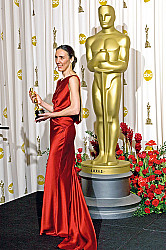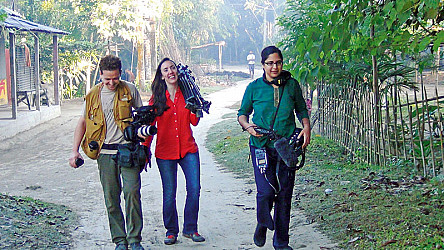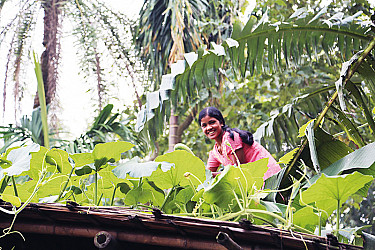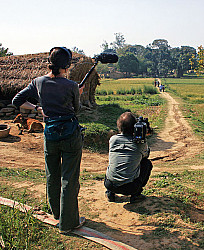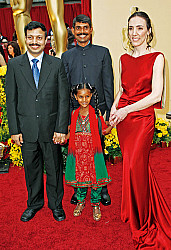Touching Lives
What drew you to the format of documentary films?
I’ve rarely met a stranger I didn’t want to know more about. I find people and their realities endlessly fascinating. As a die-hard optimist, I’m convinced that the more we get to know each other the better this world will be.
How do you select the subjects for your documentaries?
I don’t have a specific recipe for finding subjects; they often find me. What I try to do with my films is to stir up an appreciation of our shared humanity – beyond our nationality, economic class or gender. I want the audience to connect with someone who on the surface may be living a life wildly different from their own. So, I make films that usually have very strong central characters.
I try to identify people going through life-defining moments that are revealing of larger issues. Then, I go along for the ride and take my audience with me. I work in an observational style without narration or interviews. I don’t tell the audience what to think, but within the action of their lives, I’m working to find small moments that help you connect with my characters at a very human personal level.
Whether it’s a father from a village in Uttar Pradesh singing a lullaby to his daughter, a young Sudanese teenager getting a haircut for his school picture, or a Brazilian senator in the heat of a legislative battle stopping to take a call from his teenage son who’s just had his heart broken…. Those moments are pretty universal.
My hope is the next time you meet a refugee; or see a fundraising ad about children with clefts, or read about young girls being married before they’re 18, you will feel like you already know someone who’s dealt with that – they’re part of your human family and you’re more informed and passionate about the issue.
Your film Smile Pinki won the Oscar for Best Documentary Short. What prompted you to make a film about clefts?
I don’t really think of Smile Pinki as a film about clefts. For me, the story is a real-world fairy tale. A young girl is ostracised and her family treated as a source of shame in their village. Then a warm-hearted stranger comes to their region to tell her that she has no reason to suffer, all she has is an incredibly common birth defect that can be cured with a simple, free surgery. There was so much magic in it, and I was so lucky to find Pinki and her father who loved her so unconditionally.
What was the inspiration behind After My Garden Grows?
The film is part of an initiative by the Sundance Institute and the Bill and Melinda Gates Foundation to support film-makers exploring strategies for overcoming hunger and poverty. I feel there is an unprecedented conversation going on in India about gender and how girls are valued. I wanted to focus on a story where you clearly see the difference a small investment in a girl can make. After My Garden Grows tells the story of Monika Barman, an Indian teenager from West Bengal growing food to feed her family and sowing the seeds of her own independence, in a tiny rooftop garden.
I wanted to find a girl who was at a life-defining moment – grappling with the mix of poverty challenges that hit girls particularly hard. Monika’s garden and her parents looking for a groom offered that. It gives us a window into what it takes to change futures for girls and again, I love being able to share a complex, but hopeful story.
What were the challenges you faced while filming After My Garden Grows?
The biggest challenge for me was not speaking Bengali. So, I had to rely on a lot of eye contact and instinct and, of course I had to trust my translator. I’ve been fortunate to work with great Indian collaborators. It amazes me how well we can communicate when motivated to do so, but I always try to stay keenly aware of the limits of my ability to understand someone else’s life and culture.
Related posts from Verve:
Verve Trending
Sorry. No data so far.
us on Facebook to stay updated with the latest trends

